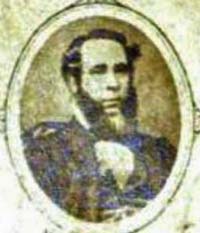Leeds Anti-Slavery Association
Leeds Anti-Slavery Association | |
 Juvenile Anti-Slavery Series published by Leeds Anti-Slavery Association | |
| Formation | 1853 |
|---|---|
| Founder | Wilson Armistead |
Leeds Anti-Slavery Association was an abolitionist society established in Leeds in 1853 and founded by Wilson Armistead. It was the first such organisation to allow women to be members and to take committee roles. The association was active in Leeds, Yorkshire and North America, supplying abolitionist pamphlets to people on the east coast.
History[]

The Leeds Anti-Slavery Association was founded in 1853 by Wilson Armistead, a Quaker abolitionist who had visited America to see the experiences that enslaved people faced and to meet with other abolitionists there.[1] Armistead was a notable abolitionist who in 1848 published .[2] It was the first organisation of it kind to enable women to take an active role in its campaigning.[3] Women as well as men were officers and committee members, and also comprised the majority of its membership.[3][4] Its librarian was , who was the wife of its president and founder, Wilson Armistead.[1]
The association ran its own journal which published the accounts of enslavement and abolitionist texts.[1] The Leeds Anti-Slavery Series was a series of 82 anti-slavery tracts, which, according to historian , were published not with home readers in mind, but in order to overwhelm "the eastern shores of the United States with a half million prints of anti-slavery sentiments from England".[5] The publications were also gathered together and published in a single volume.[1] The Association published the Leeds Anti-Slavery Juvenile Series, aimed at children.[6] Armistead used his own business at Water Hall in Holbeck as a distribution centre for his abolitionists pamphlets.[2]
In 1854 the association launched an essay competition, with prizes of 200 guineas and 100 guineas for first and second place.[7] The title entrants had to write to was "On the sinfulness of slavery, the mode of terminating it and the benefits that would result therefrom".[7] The Association hosted talks and hosted meetings, with notable abolitionists coming to speak.[8] Speakers included the author Harriet Beecher Stowe, who stayed at the home of Edward Baines.[9] On 10 December 1855 a meeting was held at , where the speakers included Parker Pillsbury, an American abolitionist.[10] This built on an existing programme of abolitionist speakers visiting Leeds; one such speaker was Frederick Douglass who delivered a lecture entitled “England Should Lead the Cause of Emancipation” on 23 December 1846.[11]
In 1857 the Association established the Leeds Young Men's Anti-Slavery Society, of which Armistead was Honourable Secretary.[8][12][13]
References[]
- ^ a b c d "Wilson Armistead (1819 – 1868) - They Lived in Leeds - Thoresby Society". thoresby.org.uk. Retrieved 2021-07-01.
- ^ a b Bennett, Bridget (2020-07-02). "Guerrilla inscription: Transatlantic abolition and the 1851 census". Atlantic Studies. 17 (3): 375–398. doi:10.1080/14788810.2020.1735234. ISSN 1478-8810.
- ^ a b BBC. "Leeds leads the way". www.bbc.co.uk. Retrieved 2021-07-01.
- ^ Midgley, Clare (1993). "Anti-Slavery and Feminism in Nineteenth-Century Britain". Gender & History. 5 (3): 343–362. doi:10.1111/j.1468-0424.1993.tb00184.x. ISSN 1468-0424.
- ^ Blockett, Kimberly (2015-09-01). "Disrupting Print: Emigration, the Press, and Narrative Subjectivity in the British Preaching and Writing of Zilpha Elaw, 1840-1860s". MELUS. 40 (3): 94–109. doi:10.1093/melus/mlv027. ISSN 0163-755X.
- ^ Britain), Anti-slavery Society (Great (1860). "Leeds Anti-Slavery Juvenile Series". Cite journal requires
|journal=(help) - ^ a b "ANTI-SLAVERY PRIZE ESSAY. - ProQuest". www.proquest.com. Retrieved 2021-07-01.
- ^ a b Wright, D. G. (1974-06-01). "Leeds Politics and the American Civil War". Northern History. 9 (1): 96–122. doi:10.1179/nhi.1974.9.1.96. ISSN 0078-172X.
- ^ "MRS. H. B. STOWE. - ProQuest". www.proquest.com. Retrieved 2021-07-01.
- ^ ""Guilty or not guilty?": A few facts and feelings regarding the religious bodies of America in the matter of slavery; being a report of an anti-slavery meeting held in Belgrave Chapel, Leeds, December 10th, 1855". 1855. Cite journal requires
|journal=(help) - ^ "Douglass in England - Frederick Douglass in Britain and Ireland". frederickdouglassinbritain.com. Retrieved 2021-07-14.
- ^ Rice, C. Duncan (1970). "III. 'Humanity Sold for Sugar!' The British Abolitionist Response to Free Trade in Slave-grown Sugar". The Historical Journal. 13 (3): 402–418. doi:10.1017/S0018246X00009250. ISSN 1469-5103.
- ^ Bennett, Mark (2014-09-01). "Confederate Supporters in the West Riding, 1861–1865: 'Cranks of the Worst English Species'". Northern History. 51 (2): 311–329. doi:10.1179/0078172X14Z.00000000067. ISSN 0078-172X.
External links[]
- Abolitionist organizations
- Abolitionism in the United Kingdom
- History of Leeds
- 1853 establishments in England